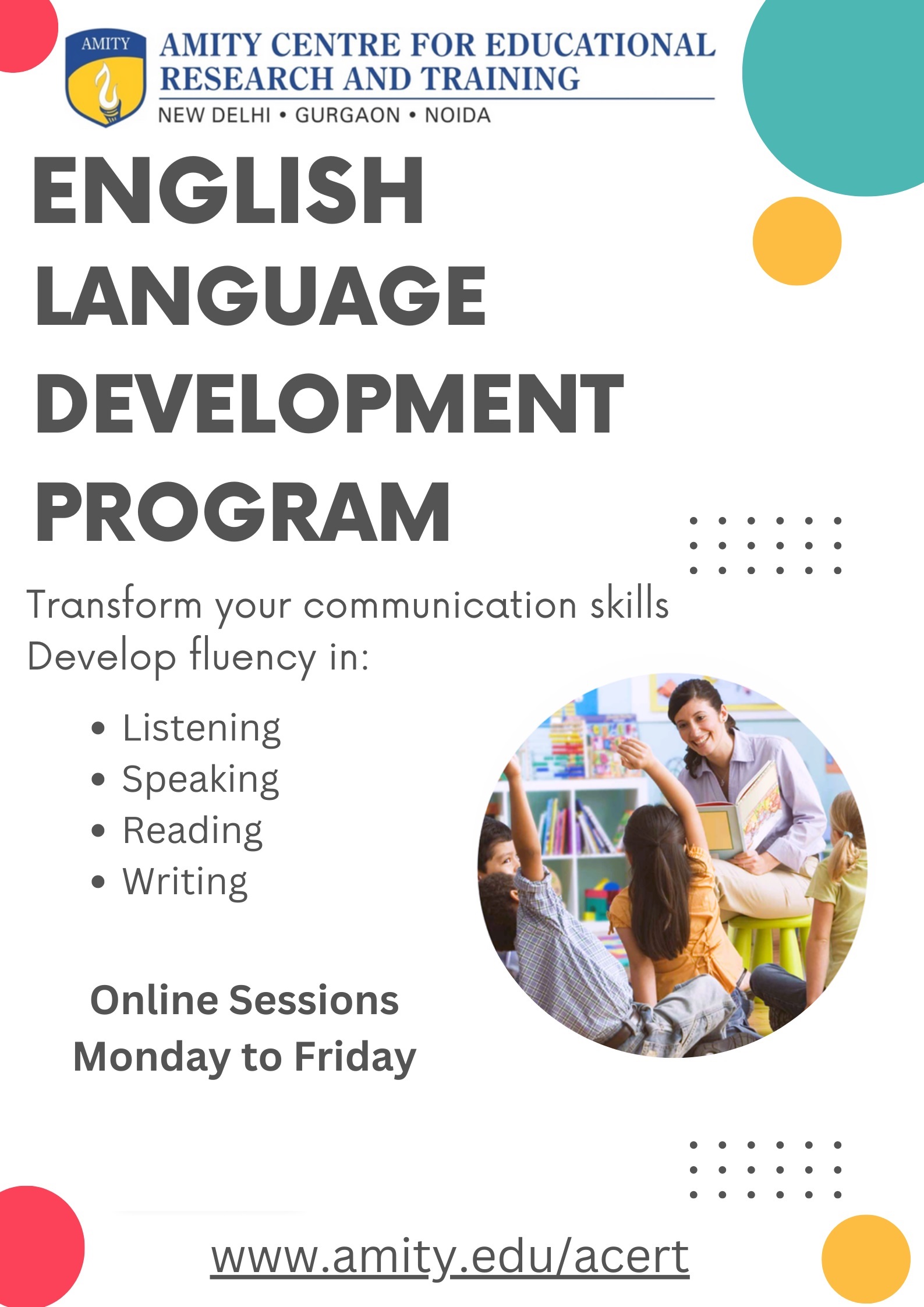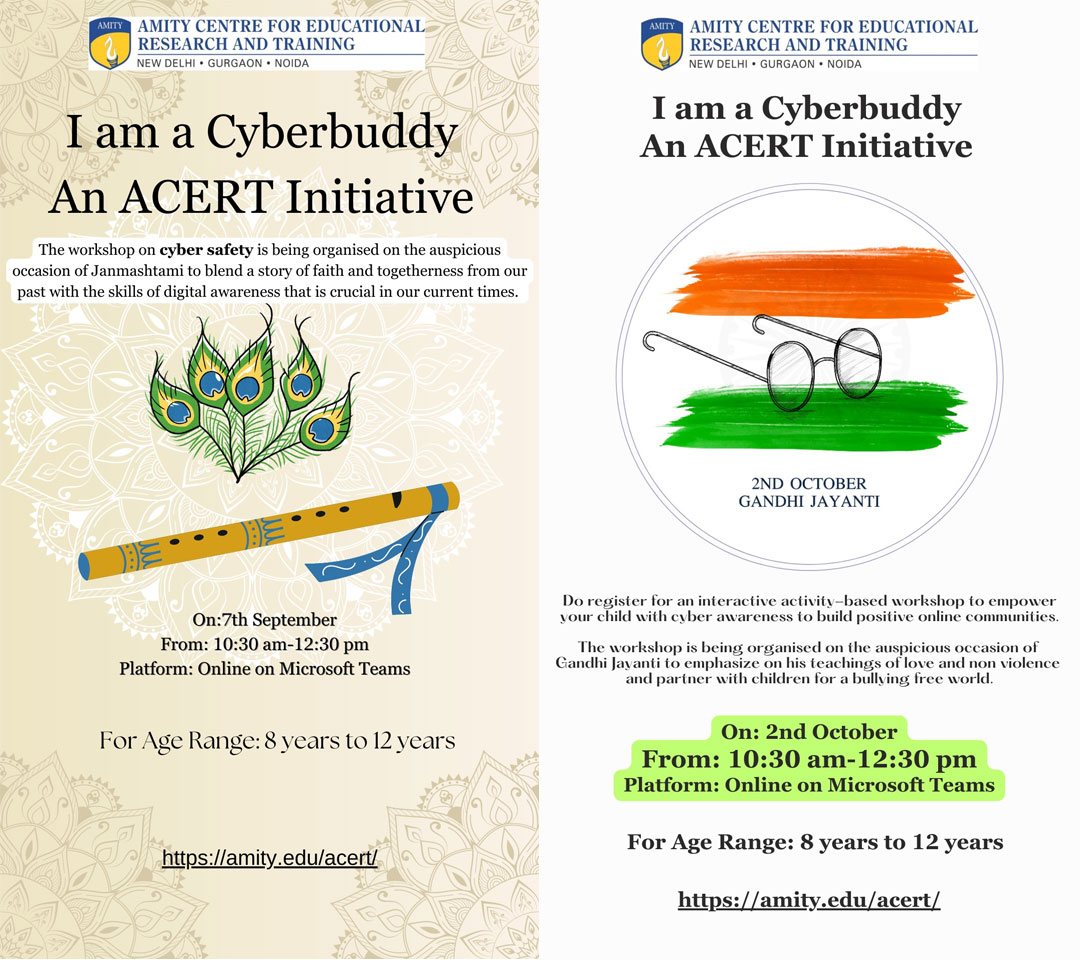PAPER – I : PHILOSOPHICAL PERSPECTIVE OF EDUCATION
This module offers students an overview of Education in philosophical and sociological perspective and as such lays the foundation for the entire course. It delves into the philosophical aspect of education in the sense of its being concerned with the aims, forms, methods, or results of the process of educating or being educated. It gives the trainees the vision of Education. This would help trainees to understand the bases or reason out "Why" and "How" behind the curriculum they impart to a child. It thus develops the ability to understand the relation between educational theory and practice. The topics would focus on Meaning of Education, its aims, the Constructivist and the objectivistic (modern and traditional) approach, sensitizing teachers towards child centered or the holistic development of the child.
This would further go into details of the changing perspectives of education and the importance of education as an agent of social change, and as an instrument of conservation of culture and human values.
The Course Outline is as follows-
Module-I :Introduction to Education
Module-II :Education and Philosophy
Module-III :Contributions of Philosophers relevant to Primary Education
Module-IV :School Education in Indian Societal Context
PAPER II : PSYCHOLOGY OF LEARNING AND DEVELOPMENT
The course content would enable the teachers of tomorrow to understand teaching learning process from a psychological perspective. The trainees will acquire the knowledge about patterns and aspects of learner development. It will also enable the trainees to recognize areas of individual and social differences among children. With such an in-depth study and understanding of child development and child psychology teachers, parents and adults working with children, will be able to impact the education and transform the lives of children who are the future of our country.
The Course Outline is as follows-
Module – I : Understanding the development of the learner
Module – II : Understanding individual difference in learners
Module- III :Understanding the learning process
Module – IV :Facilitating learning and development
PAPER III : PRIMARY EDUCATION WITH EMPHASIS ON MONTESSORI METHOD
The Montessori Method:
The Montessori Method: It offers a broad vision of education as an aid to life. It is designed to help children with their task of inner construction as they grow from childhood to maturity. Montessori philosophy and materials are a huge success because it draws its principles from the laws of natural development of the child and guides him towards wholesome growth and integrated personality. Montessori educational practice helps children develop creativity, problem solving, critical thinking and time-management skills, care of the environment and each other, and prepares them to contribute to society and to become fulfilled persons. Keeping in view the holistic development of children aided by Montessori method and its success across the globe a special focus is given on Montessori method which makes the course content a unique blend of Indian Educational requirement and at the same time gives exposure to Internationally acclaimed Montessori Method.
The following modules are designed that equip the Teachers of Tomorrow to work in any Montessori school/setup.
Module 1- :Practical life exercises
Module 2-: Sensorial
Module 3- : Language and Literacy
Module 4- : Mathematics and Numeracy
Module 5- : Knowledge and understanding of the world
PAPER-IV : CURRICULUM, INSTRUCTION AND CLASSROOM MANAGEMENT
Curriculum Planning and development forms an integral part of the Teaching Profession .This module intends to develop an understanding in educators of different aspects of developing and planning curriculum 2-14 age groups. The Content goes into details of how Philosophy, Psychology, individual interests and social goals determine the content, methods of teaching while framing curriculum. The module further aims to sensitize and enlighten the future educators of the principles of Developmentally Appropriate Curriculum. The educators will explore how a theme can be made appropriate for different age groups by enhancing the levels of challenges or by simplifying it .The module also aims to teach effective techniques to trainees to how to integrate a particular theme across the curriculum called Thematic Teaching. The trainees will be given rigorous practice of subject based curriculum up to elementary level.
Apart from delving into the broader perspective of School Management the module gives special attention to dimension and principles of classroom management, teaching skills, teaching strategies and instructional planning. The content would equip and instill confidence in the trainees to face difficult and different situations. The trainees would also be given exposure to set up their classrooms in different ways keeping in mind the available resources, economy, aesthetics, etc. Upon completion of the module the teacher trainees would be more confident, better equipped and would have acquired right attitude to face the practical situations of the profession. This module also aims to equip the teacher trainees who aspire to be entrepreneurs by opening their own schools for Toddlers, preschoolers and primary age groups.
The Course Outline is as follows-
Module- I : Curriculum Types and approaches
Module –II : Instructional Planning
Module- III : Teaching Skills and Training Strategies
Module –IV : Classroom Management
Apart from laying a strong foundation of principles of education, educational philosophy, psychology of learning and development the course also aims to develop skills which form an intrinsic part of teaching profession . Thus a set of important skills of teaching profession are imparted by team of professionally trained trainers, experts and outsourced agencies.
The skill Development workshops are as follows-
- Teaching of Art
- Music and Movement
- Story and Drama
- Health, Nutrition and Meal-Planning
- Personal Effectiveness
- Computer Application
- Professional Grooming
- Trip Planning
The course content aims to enable the teacher trainees to understand the nature of measurement and evaluation and to be able to select tools for evaluating different kinds of learning. The teachers of tomorrow will also be able to use various valid and reliable tools and techniques of measurement and evaluation. It will further develop competencies to use elementary statistical methods for analysis and interpretation of data and understand the current issues and trends in educational measurements and evaluation.
Module I :Measurement and Evaluation
Module II : Educational Objectives
Module III : Tools of Evaluation
Module IV :Test Construction
Module V : Statistical Treatment of Data
Module VI : Grading and Reporting Achievement
Language development forms an important part of the holistic development of a child. Without language the personality of an individual can not considered to be complete. The content has been evolved to teach trainees effective strategies to identify and promote language skills of children. The student teachers will learn the nature and features of English Language. It will develop all the four language skills (listening, reading, speaking & writing) and the ability to teach these linguistic skills to their pupils. It will enable student trainees to improvise and use appropriate instructional aids for teaching English. The student trainees will develop competencies to plan and teach lessons in English prose, poetry, grammar and composition prescribed at elementary level. It will further enable the trainees to be able to identify and analyze errors, plan remedial instruction in English language, plan action research on problems related to teaching and learning in English and use various techniques for evaluating learner achievement in English.
Module I: Nature of English Language
Module II: Objective Based Teaching of English
Module III: Approaches and Methods of Teaching English
Module IV: Instructional Materials
Module V: Instructional Planning in English
Module VI: Evaluation
Module VII: Pedagogical Analysis
Module VIII: Action Research
Teaching Subjects-The candidate has to choose any I language and any I option from other subjects
The course will enable the student teachers to develop a clear perspective of the nature of Hindi language and its evolution to present form. It will further help the student trainees in understanding of language skills and their inter linkages. It will also develop competencies to select and use appropriate instructional strategies for teaching different forms of Hindi language and the skills in planning for effective instruction in Hindi, use of support materials for teaching Hindi and the competencies for evaluating learner achievement in Hindi
The Course Outline will be as follows-
Module I: Language and its Importance
Module II: Objective Based Teaching of Hindi
Module III: Approaches to Teaching of Hindi
Module IV: Support Materials for Teaching of Hindi
Module V: Instructional Planning in Hindi
Module VI: Evaluation
Module VII: Pedagogical Analysis
Module VIII: Action Research
The course content will enable the student teachers to develop clear perspective of the nature of Mathematics and its historical development with special emphasis on contributions of Indian mathematicians. It will further develop an understanding of mathematics through content enrichment and the important place of mathematics in school curriculum. It will also develop competencies of selecting and structuring instructional strategies and support materials for teaching specific topics in mathematics. The trainees will learn the ways for planning mathematics instruction, developing tools for evaluating mathematical learning, conducting pedagogical analysis, and planning action research
The Course Outline is as follows-
Module I: Nature of Mathematics and its Historical Development
Module II: Aims and Objectives of Teaching Mathematics
Module III: Approaches to Teaching of Mathematics
Module IV: Support Systems/Materials for Teaching of Mathematics
Module V: Planning for Mathematics Teaching
Module VI: Evaluation in Mathematics
Module VII: Pedagogical Analysis
Module VIII: Action Research
Course Objective is to enable the student teachers to understand the concept, objectives and importance of environment education. It also aims to develop awareness about environmental pollution, its possible hazards, causes and remedies. It will further enable the teacher trainees to be able to identify various strategies and methods for realizing the objectives of environmental education. The course content will equip the teacher trainees to be able to develop and reinforce new patterns of environmentally sensitive behaviors among individuals and groups for a sustainable environment.
The Course Outline is as follows-
Module I:
Introduction to Environmental Education
Environmental Crisis
Module II
Sustainable Development
Environmental Awareness through Education
Module III
Transaction Strategies
Pedagogical Analysis of any Topic
(up to class VIII th as per CBSE syllabus)
Module IV
Evaluation and assessment
Evaluation Devices through
TEACHING OF SOCIAL SCIENCES
The course aims to enable the student teachers to understand the concept, nature and scope of social science. Upon completion of the course the teacher trainees will be able to understand and appreciate the need for teaching social science as an integrated discipline. It will further enrich the knowledge of basics in history, civics, economics and geography. Upon completion of the course the trainees will acquire skills in teaching social sciences and competencies for: designing unit and lesson plans, as well as tools of evaluation for social science teaching. The student trainees will also acquire skills in preparation and use of support materials for effective social science teaching and the ability to organize co-curricular activities and community resources for promoting social science learning.
The Course Outline is as follows-
Module I
Nature of Social Sciences
Objectives of Teaching Social Science
Module II
Approaches to Social Science Instruction
Planning and Transaction
Module III
Evaluation
Module IV
1. Pedagogical Analysis of topics up to VIII th as per syllabus of CBSE
2. Action Research

 Message from Chairperson Facilitators Bio Membership Plans (Half Yearly Membership) Membership Plans (Annual Membership) Upcoming Workshop Registration Form Workshop Invites Workshop Glimpses Workshop Titles Parents Feedback Workshop Resources Write to us Placements Placements 2023-24 Placements 2024-25
Message from Chairperson Facilitators Bio Membership Plans (Half Yearly Membership) Membership Plans (Annual Membership) Upcoming Workshop Registration Form Workshop Invites Workshop Glimpses Workshop Titles Parents Feedback Workshop Resources Write to us Placements Placements 2023-24 Placements 2024-25

